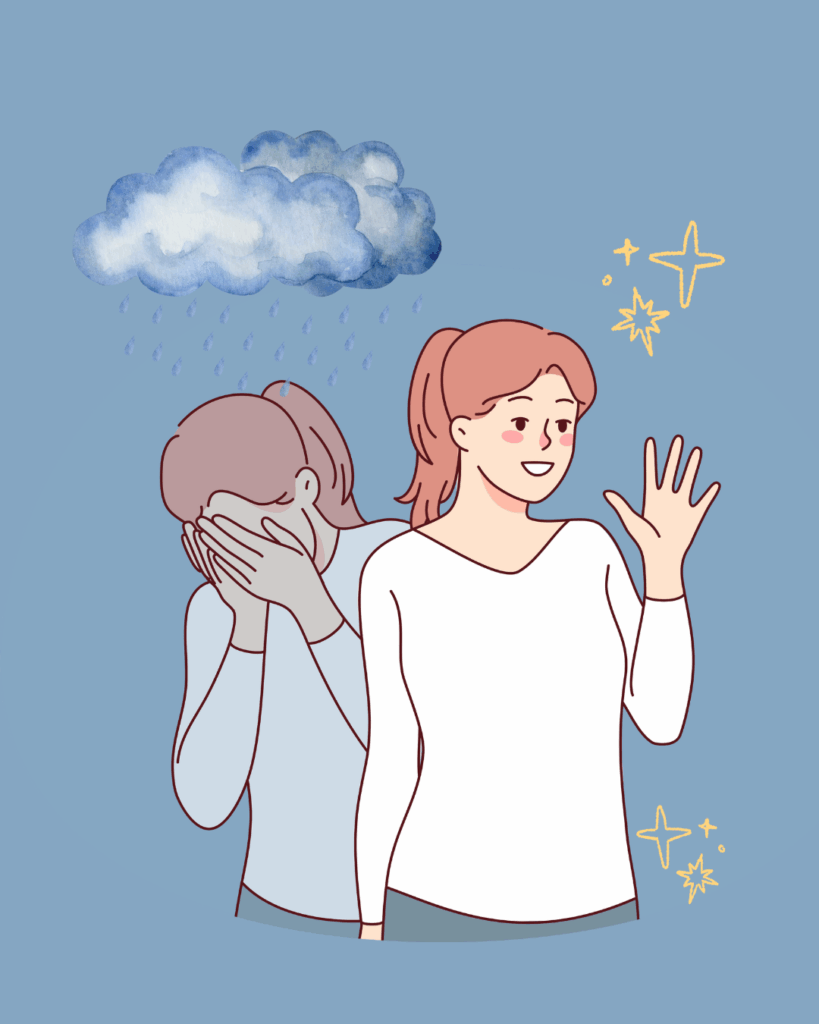 If you looked at Lyn on the outside, you’d think she has it all together. A full-time job in a reputable firm, a decent social life, and a reputation for always being there when someone needs her. But what no one sees is the emotional weight she carries each day: the persistent low mood, the numbness, the exhaustion that doesn’t go away, no matter how much she sleeps.
If you looked at Lyn on the outside, you’d think she has it all together. A full-time job in a reputable firm, a decent social life, and a reputation for always being there when someone needs her. But what no one sees is the emotional weight she carries each day: the persistent low mood, the numbness, the exhaustion that doesn’t go away, no matter how much she sleeps.
Lyn isn’t lazy, and she isn’t dramatic. She may be experiencing something that many people silently live through: high-functioning depression.
Let’s dive into what High-Functioning Depression is.
High-functioning depression isn’t an official clinical diagnosis, but it’s a term often used to describe Persistent Depressive Disorder (PDD), also known as dysthymia. It refers to a chronic (long-term) form of depression where a person can maintain their day-to-day responsibilities, such as going to work, socialising, or parenting, but internally, they’re struggling.
Unlike major depression, which is visibly disabling, high-functioning depression is often invisible. Individuals continue “functioning”, but that doesn’t mean they’re thriving. The invisibility of high-functioning depression is usually wired in high-performing environments.
In a fast-paced culture, even like that of Singapore, where being busy often feels like a badge of honour, it makes sense to tie your worth to how productive or “put together” you seem. However, behind the achievements, polished routines, and polite smiles, many people are quietly struggling.
You might feel alarmed to know that, according to the Singapore Mental Health Study (2022) by the Institute of Mental Health (IMH), 1 in 3 adults in Singapore has experienced a mental health condition in their lifetime, and that includes depression. These aren’t rare stories. They’re often happening in your office, in your home, or even in the mirror, just hidden beneath the surface.
Things become worse because many do not seek support due to the pressure of “keeping up appearances,” afraid that showing vulnerability might be considered weakness. Some genuinely don’t realise that what they’re experiencing is depression because their lives appear “fine” from the outside.
In therapy, we often meet people who didn’t realise they were depressed until the weight became too heavy or their energy just ran out. They kept showing up, until one day something inside them whispered, “I can’t anymore”. It’s not about a lack of willpower. It’s about the quiet erosion of joy and energy, day after day.
And one of the most heartbreaking aspects of high-functioning depression is how invisible it is even to the person going through it. Many clients in therapy share, “I didn’t think I could be depressed because I was still showing up.” But depression doesn’t always mean you’re lying in bed all day, and neither does it always make a loud entrance. It creeps in quietly, often disguised as “just being tired” or “just feeling off.”
Some signs to pay attention to:
- You’re exhausted all the time, even after getting a full cycle of sleep
- You show up for others, but feel emotionally distant or empty inside
- You appear cheerful, but it feels performative
- You struggle with self-worth, even with external accomplishments
- You tell yourself, “I should be grateful, so why do I feel this way?”
- You get things done, but often feel demotivated
This emotional dissonance between how someone appears and how they genuinely feel creates a heavy burden. Over time, it can lead to burnout, disconnection in relationships, substance misuse, or even suicidal thoughts. Yes, it’s easy to minimise your pain when you’re still functioning. But just because you can carry it doesn’t mean it’s not heavy. You do not need to cross an emotional threshold to deserve support. You don’t need to wait until you’re falling apart to reach out.
So what can help?
- Talk to a professional. You don’t have to diagnose yourself. A mental health professional can help you explore what’s going on in a safe, supportive space.
- Name it. Sometimes, just having a label helps. “Oh, this isn’t me being weak or ungrateful. This is something real.”
- Reconnect with small pleasures. Even a 10-minute walk, a warm meal, or music that moves you can become acts of self-anchoring.
- Challenge the inner critic. If your mind says, “You have no right to feel this way,” ask where that voice comes from and whether it’s helping you heal.
- Build your village, whether it’s friends, a support group, or an online community, because connection counters isolation.
Living in a culture that often values performance over presence, it’s understandable why you’ve had to keep going. But your worth is not in what you do. It’s in who you are. And it’s okay to want more than just functioning because you deserve to feel alive.
Book a consultation session today here because you don’t have to figure this out alone.

